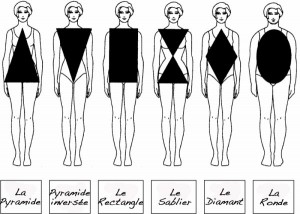 EGSS is pleased to announce the topic for the upcoming March 2015 graduate student conference: “Imagining the Ideal Body: A Graduate Conference on the Politics and Poetics of Perfection ». The conference committee invites you this year to consider how body and text come together in art and literature.
EGSS is pleased to announce the topic for the upcoming March 2015 graduate student conference: “Imagining the Ideal Body: A Graduate Conference on the Politics and Poetics of Perfection ». The conference committee invites you this year to consider how body and text come together in art and literature.
In her work Volatile Bodies, Elizabeth Grosz proposes that the body can function as an inscriptive surface upon which cultural ideals, values, and rules are written and read. “It is almost as if the skin itself,” she writes, “served as a notebook, a reminder of what was not allowed to be forgotten1.” The body becomes a site for meaning-making, a space where histories are transcribed and futures are predicted; the body becomes a simulacrum, and its production and reproduction throughout history expose the ever-changing gaze societies cast upon representations of corporality.
From Medieval preoccupations with the body as a locus for virtue or sin, to the eighteenth-century culture of rationality that isolated the mind from the passions of body, or the new bodies/subjects and disembodied aesthetics of Modernist literature and beyond, the integrity of the body is a constant critical concern. In the 21stcentury, our preoccupations with corporeal purity and perfection mean that we are continually exposed to images and depictions of the ostensibly ideal body, and all of these discourses consistently frame the body as a problem to be solved. Thus, as critics such as Judith Butler, Rosemarie Garland-Thompson, and Patricia Hill Collins have shown, “being” or “having” the perfect body becomes a kind of lived ambivalence, since the imperfect body is ever present in its very negation.
The goal of this conference is to better understand how the aesthetics of perfection are constructed in literature. Who prescribes, defines, and writes the body ? How is it interpreted ? Is the idea of perfection a fixed temporal concept or a fluid one ? Is the body limited to its physical presence or can it inhabit a text through other forms ? What is the dialogue between perfection and imperfection, or even physical and literary bodies ?
We invite submissions in English or French from graduate students for individual presentations, panels, and creative projects addressing the influence of the ideal body from any disciplinary perspective. Topics may include, but are far from limited to, literature and criticism that addresses:
-
Mutations, Modifications, Medications
-
Poetics of Health, Illness, and Disability
-
Self-Writing and Self-Perception
-
Intertextual Infections
-
Deviant and Disobedient Bodies
-
Theories of Youth and Ageing
-
Mental vs Physical Health
-
Animal Bodies and Human Bodies
-
Corporeal Narrations
-
Cyborgs and Technology
-
“Real” vs “Represented” Bodies
Please send your 250 word abstract, accompanied by a brief academic biography of no more than 100 words, to UdeMEGC2015@gmail.com by December 15th, 2014. Essay prizes will be awarded for Best Presentation by an MA candidate, Best Presentation by a Ph.D. candidate, and Best Creative Work.
1 Elizabeth Grosz, Volatile Bodies, Bloomington, Indiana University Press, 1994, p. 132.
Twelfth Annual Université de Montréal English Graduate Conference — March 12 & 13, 2015

Leave a Reply
You must be logged in to post a comment.